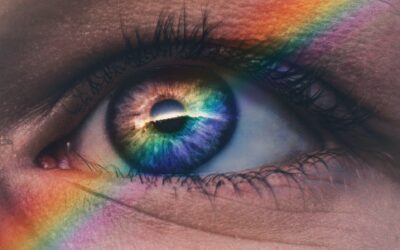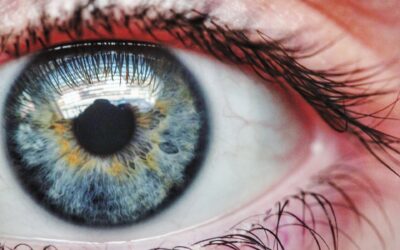In addition to the many other bodily changes taking place during pregnancy, a mom-to-be can also have changes in the eyes. These are usually transient and go back to normal after the pregnancy, but it is wise to keep a close watch on them with an eye examination if changes to vision are occurring. This article will outline some of these possible changes.
Your Glasses Prescription May Change When Pregnant
It is common for the mother to experience blurry vision due to a change in her refractive error, which can also be understood as a change in her degree of nearsightedness, farsightedness, or astigmatism as measured in her glasses prescription.
This is due to increased fluid retention throughout the body during pregnancy, including within the eye. One location for this is within the cornea, the clear front surface of the eye, causing a change in its thickness and curvature. It can also occur in the natural lens within the eye as well.
This would in turn alter the prescription needed to allow one to see clearly. This change is temporary and will likely return to normal after delivery.
It is common that our optometrist will wait six to nine weeks after delivery to update your prescription for glasses or contact lenses.
Gestational Diabetes Can Occur During Pregnancy
During pregnancy, women can develop gestational diabetes, defined as an increase of glucose in the blood during pregnancy that usually resolves after delivery.
Diabetes on its own can have detrimental effects to the health of the eyes in addition to the rest of the body if it is not well controlled for long periods of time.
Gestational diabetes usually does not get bad enough to cause these changes or symptoms, but it may exacerbate pre-existing diabetes by making blood sugar more difficult to control and regulate.
Other risk factors for diabetic retinopathy include coexisting hypertension, preeclampsia, greater severity and duration of diabetes, etc.
If you have an eye examination during your pregnancy, our eye doctor will find anything out of the ordinary if it is present and manage it accordingly or inform your other doctors of the changes.
Dry Eyes May Also Worsen
As mentioned previously, fluid can accumulate in the cornea during pregnancy, causing a decrease in sensitivity at the front of the eye.
The eyes are thus less responsive to debris or dryness in the eyes, exacerbating the effects of dry eyes due to a lack of activation of the body’s defense responses like tearing.
In addition, pregnancy and its associated hormonal changes disrupt the cells that are responsible for creating the watery fluid that makes up the tear layer.
This is key as it helps keep the eye moisturized, nourished, and healthy overall. Common symptoms of dry eye disease include a gritty, burning feeling and are often transient as well.
Mild dry eyes experienced during pregnancy can be managed with interventions like artificial tears and hot compresses, but there is a lot that can be done if the signs and symptoms are more intense and pose a risk of eye damage.
Contact lens intolerance may also be experienced, secondary to symptoms associated with dry eye disease. For this reason, it is common to wait six to nine weeks after delivery to get fitted for contact lenses again.





